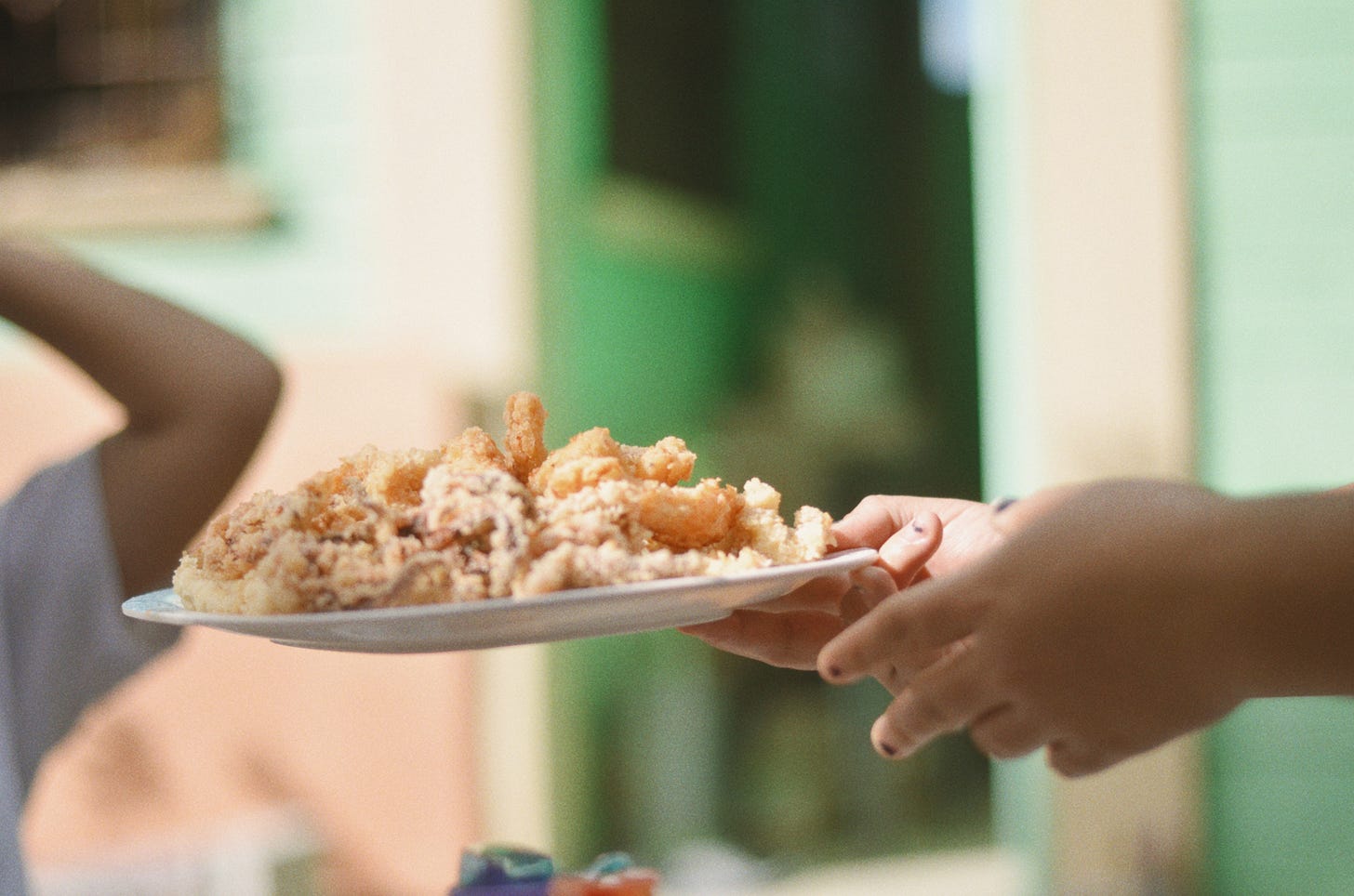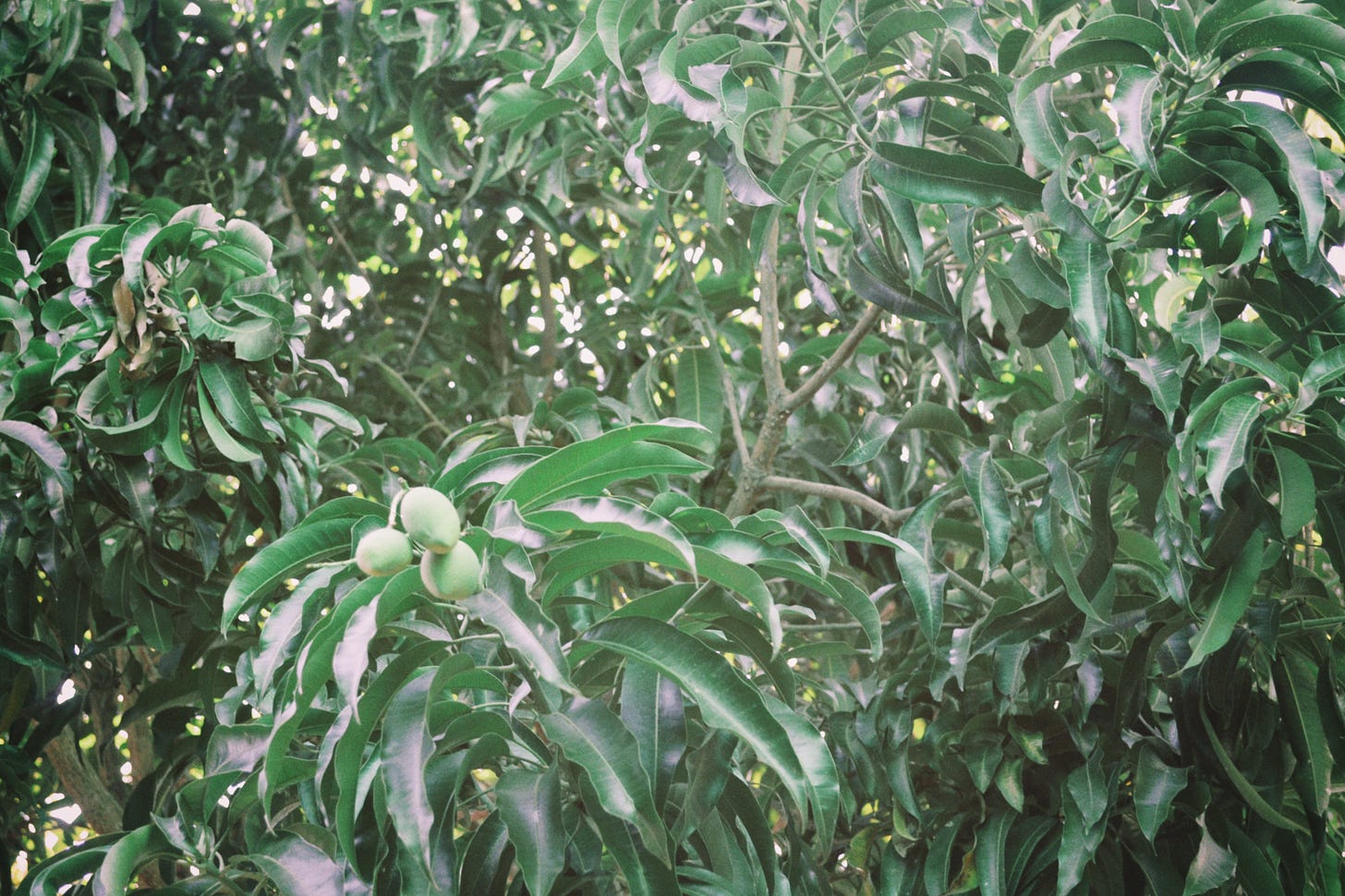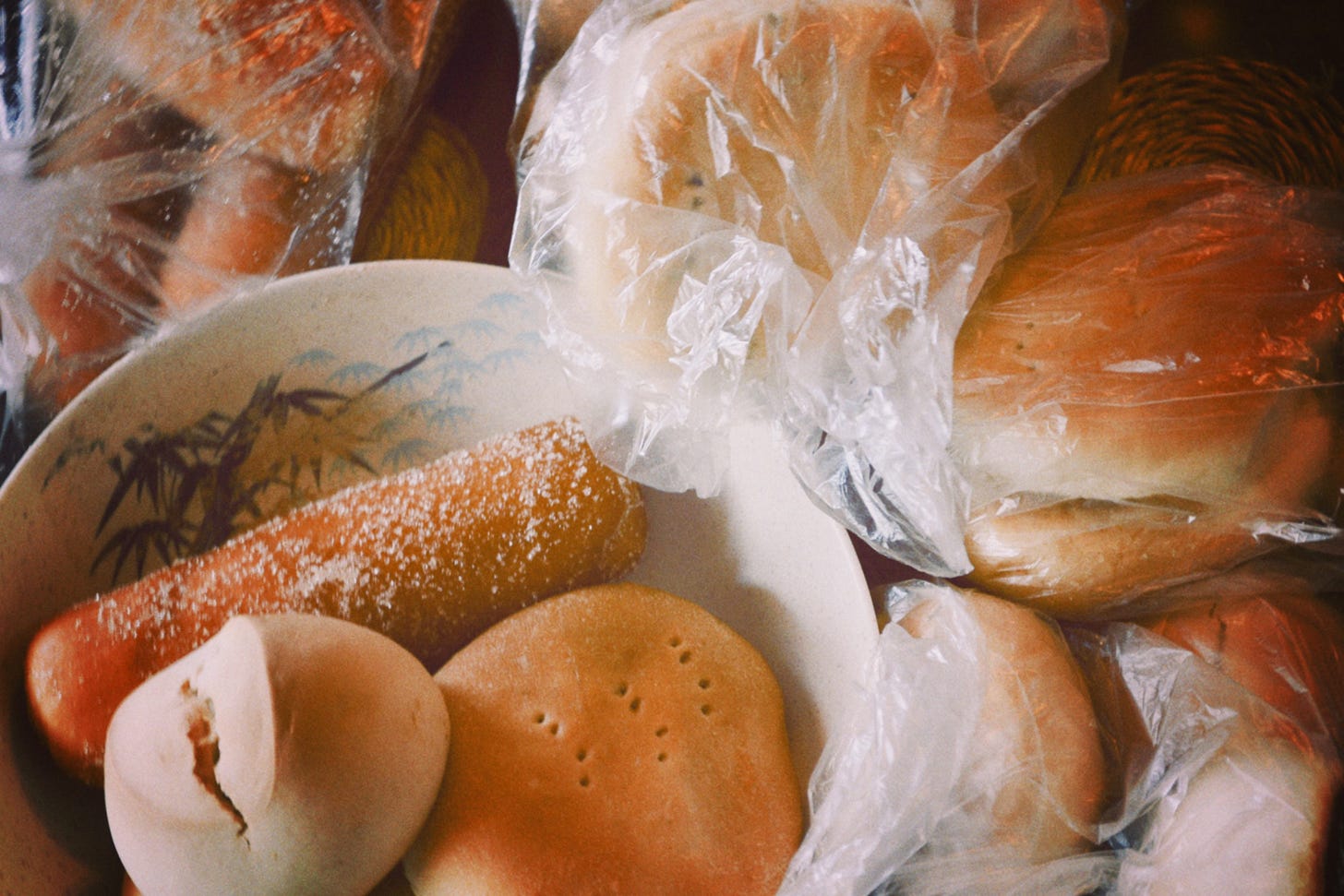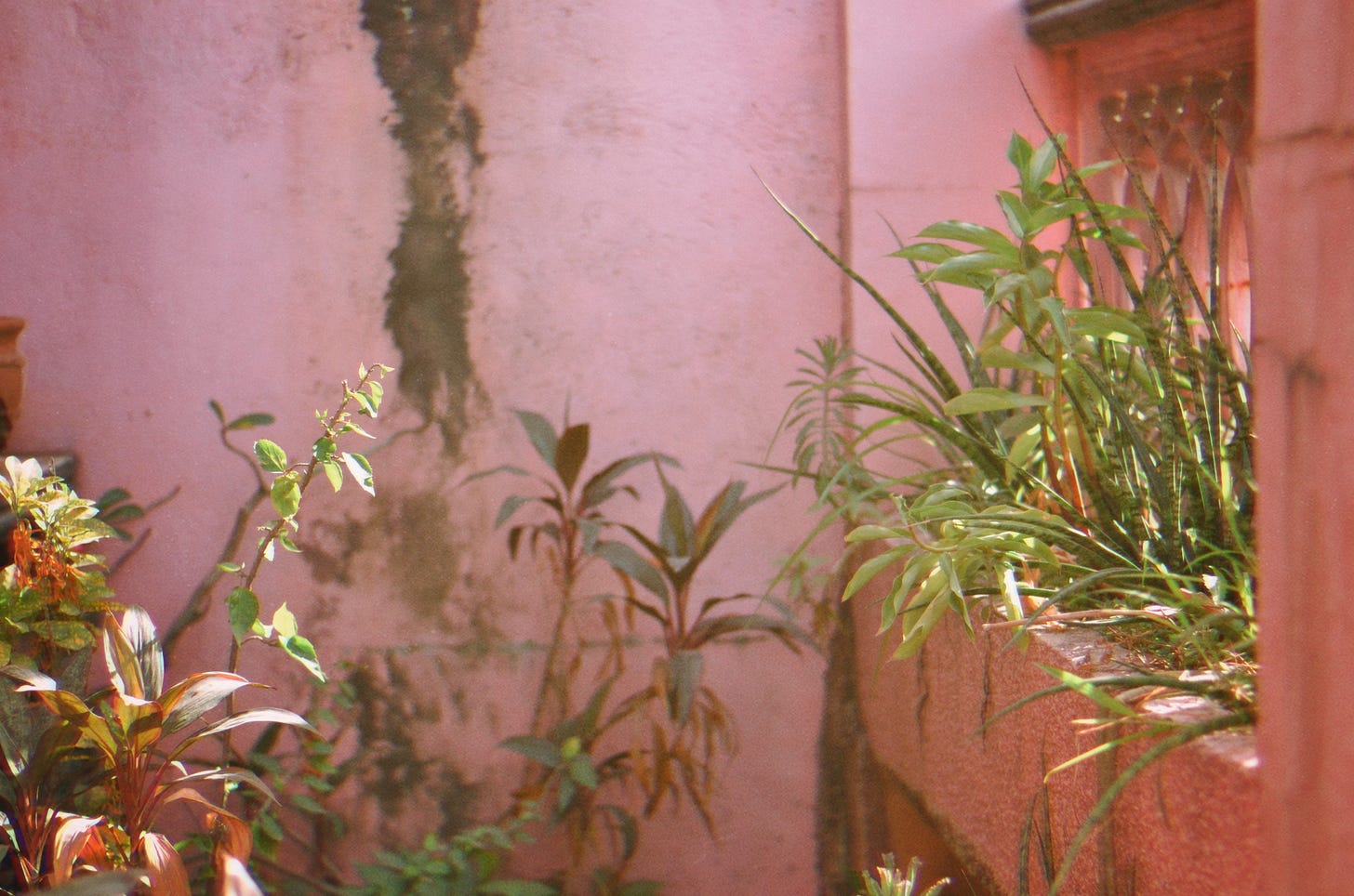Being Kapampangan, from the culinary capital of the Philippines, defined my taste. Our dishes boast the pungent, malinamnam flavor through ulam like asadung matua, tidtad, bringhe, and bulanglang na bayabas (a personal favorite). It should also go without saying that it is sacrilegious to put an egg in traditional Kapampangan sisig.
Coming from a heritage that centered on how well you cooked meant that I had an acute sense of awareness, not only of what was excellent, but also of the patience and care required. One dish could take an entire week to prepare during our fiestas for Apung Iru. Our Apus (elders/grandparents) passed down this cultural and institutional knowledge with a fine balance of tradition, improvisation, and intuition.
A lot of humility was instilled in this atmosphere — your taste testers had that same discerning, Kapampangan tongue. Aside from these dedicated gestures towards excellence, food had a collective nature.
I was always taught, even it seemed so simple, that food was a shared act, whether during fiestas, birthdays, noche buenas, or a simple meryenda.

At a young age, my dad instilled in me this practice: if you were eating and someone was nearby, you should always invite them to eat with you with a simple 'Mangan tana,' or 'let’s eat.' Even if you know they have already eaten, it is a genuine, automatic invitation of sharing what you have with others without reservations.
A small but formative gesture that is almost missable.
“Filipinos are not governed by the concept of time. We are governed by space.”
— Lav Diaz
Meryendas in the province are my favorite memories. Under the shade of the abundant chico trees in Pampanga, nothing really happens during meryendas except an enjoyable stretching of time to lounge around over tinape (bread), fruit, juice, and other local delicacies. If you’re lucky, an electric fan is plugged in nearby to make the tropical heat a little more bearable. And if you’re even luckier, you might hear the latest piece of neighborhood gossip or two.
While I can’t replicate those meryendas, I’ve always been curious about the bread and pastries that are truly Kapampangan. I also feel a sense of responsibility to maintain my knowledge of my heritage, especially through what may seem mundane and light.
I’m always grateful for my family back home for answering to the call of research. Here are their generous responses, with a few of my childhood nicknames sprinkled in:
Tibok tibok bujoinks duman itang green very classic la den.. tinape bakery detang aliliwang pan: pan de regla, pan de coco, pandelimon.. e me kakalingwan ing putok.
Try me ing suman ebus, tamales, sampelut. Ing sampelut usually kareng pangadi o Kaya kematayan bibye da kareng siping bale
Inangit at sampelut ing manyaman mag partner nak..ampo ita lelut balatung a lulutu ng Apung Meren.
San Nicolas a tinape ampo mapaling kape.
Hi Jen, tinape ..kababayan, monay, tidtad ampo putong maputi, kutsinta, pande coco....
Pandesal tiltil king gatas damulag with sugar
Hi Jen! Tamarindo, hinog na Sampaloc gata ampo buko ampo mayumu paghaluhaluin, manyaman ing Tamarindo,
Hi Jen, Turones de Casoy ampong San Nicolas Cookies. Rgds kekayu ngan.
Nilatik na palitaw,suman baculud with chocolate batirul made of cacao and mani roasted
Tamales ampong suman bulagta beshie.
Whether it was over San Nicolas cookies, Pan de sal dipped in mapaling gatas damulag, or Kapampangan tamales, the slow, post-siesta afternoon meryenda is the space where I was shown the minimum gestures of generosity and tenderness — to break bread.



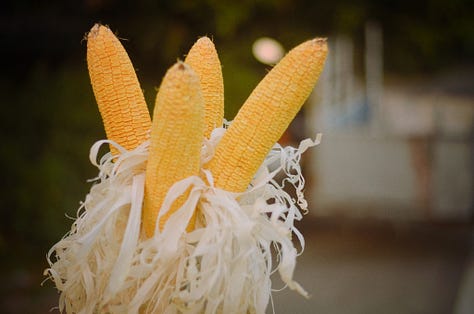



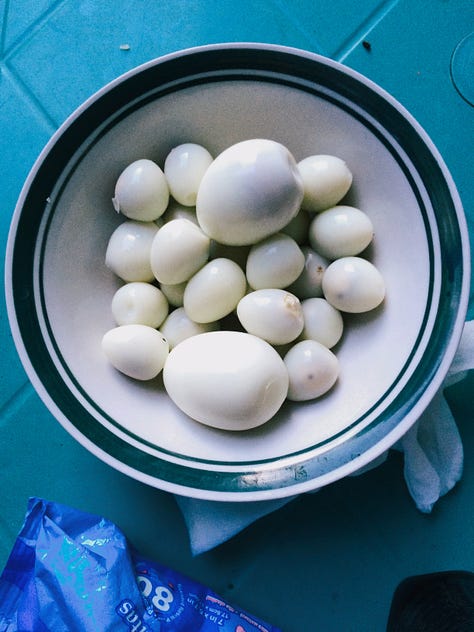

As a final note, here are fragments of my parents reminiscing about their favorite tinape during one afternoon meryenda in Kapampangan.
My favorite poet, Conchitina Cruz, wrote “Morning”. Its matter-of-act observations of our encounters with the built environment remind me of the straightforward balmy-ness of meryendas, even if factually, meryendas are a late afternoon past-time.
You never know when somebody will walk away from you on a bright day on a busy street, never looking back and
you cannot believe the slow disappearance, cannot believe what is moving away from your reach until the busy street no longer needs its presence to look the same, because it is the same.
And the city offers you its fruits and fish, and the churchgoers lift their veils as they step out in the open
and you know the picture is incomplete but it can stand for itself
and who are you to ask for more, who are you to insist on hunger?
*Mikitiks keng susunod a meryenda,
Jenina/Jen/Bujoinks/Olac olac/Jenins






